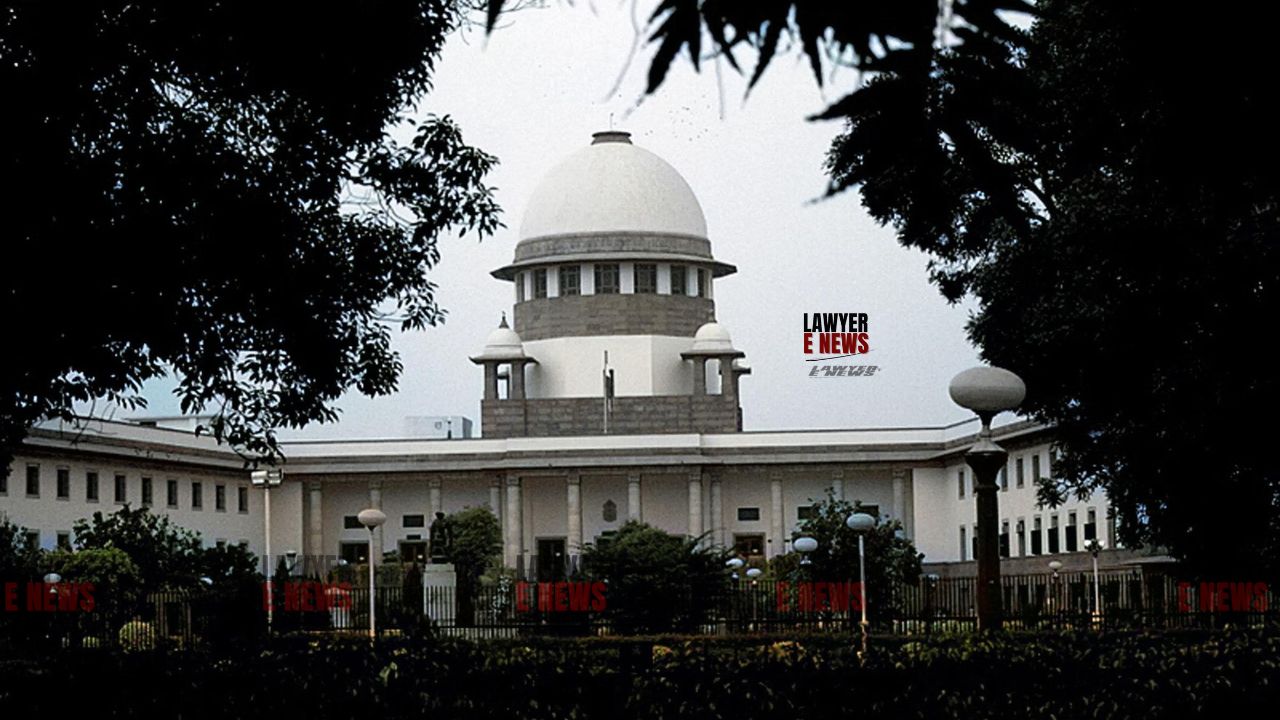-
by sayum
14 February 2026 2:22 PM



The Supreme Court of India, in a recent judgment, upheld the conviction of Nitya Nand and others involved in the murder of Satya Narain, emphasizing the application of collective liability under Section 149 of the Indian Penal Code (IPC). The bench, comprising Justices Abhay S. Oka and Ujjal Bhuyan, dismissed the appeal, affirming the life sentences imposed by the lower courts on the grounds that the accused were part of an unlawful assembly with the common object of committing murder.
The case originated from an incident on September 8, 1992, in Etah, Uttar Pradesh, where Satya Narain was brutally murdered by his brother Shree Dev and his sons, including the appellant Nitya Nand. The murder stemmed from a long-standing family dispute over property, with tensions escalating after Laxmi Narain, the youngest brother of the deceased, willed his property to Satya Narain’s sons. The assailants confronted Satya Narain at a ghat and attacked him with deadly weapons. Despite attempts by the victim’s son and others to intervene, Nitya Nand fired a shot in the air to facilitate the group’s escape. Satya Narain succumbed to his injuries at the scene.
The Supreme Court placed significant reliance on the eyewitness accounts provided by Sarwan Kumar, the victim’s son, and other witnesses. The Court found that these testimonies were consistent and supported by medical evidence, which confirmed that Satya Narain died due to multiple stab wounds and incised injuries inflicted by sharp weapons like knives and a kanta.
The Court upheld the application of Section 149 IPC, which imposes vicarious liability on all members of an unlawful assembly for offenses committed in pursuit of the common object. The bench noted, “The presence of the accused in the unlawful assembly and their active role in aiding the escape of the actual assailants is sufficient to attract Section 149 IPC, making them equally liable for the offense of murder.” The judgment emphasized that the specific role of firing a shot to deter intervention, though not causing direct injury, contributed to the common object of the assembly—murder.
Addressing the defense’s argument regarding the non-recovery of the country-made pistol allegedly used by Nitya Nand, the Court ruled that the absence of the weapon did not weaken the prosecution’s case. The bench underscored that the substantive evidence provided by the eyewitnesses and the medical report sufficiently established the involvement of the appellant in the crime.
The Court reaffirmed that under Section 149 IPC, it is not necessary for every member of the unlawful assembly to directly participate in the fatal act. As long as they share the common object and are present at the scene, they can be held liable for the resulting crime. “The fact that the appellant did not physically assault the deceased but was instrumental in facilitating the crime by firing in the air reinforces his complicity under Section 149 IPC,” the Court observed.
Justice Ujjal Bhuyan remarked, “Section 149 IPC does not require the direct involvement of each member in the actual commission of the offense. Mere presence and active participation in furtherance of the common object are sufficient to establish guilt.”
The Supreme Court’s ruling reaffirms the broad scope of collective liability under Section 149 IPC, particularly in cases involving unlawful assemblies with violent objectives. By dismissing the appeal, the Court has reinforced the principle that all members of such assemblies are equally culpable, sending a strong message about the consequences of group criminal activities.
Date of Decision: September 4, 2024
Nitya Nand vs. State of U.P. & Anr.
